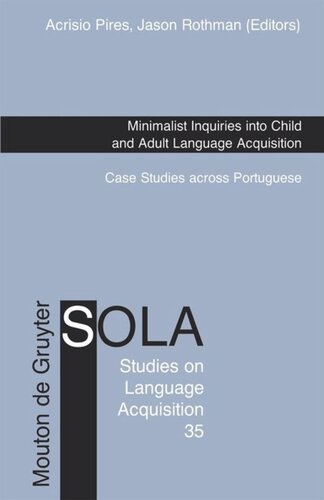

Most ebook files are in PDF format, so you can easily read them using various software such as Foxit Reader or directly on the Google Chrome browser.
Some ebook files are released by publishers in other formats such as .awz, .mobi, .epub, .fb2, etc. You may need to install specific software to read these formats on mobile/PC, such as Calibre.
Please read the tutorial at this link: https://ebookbell.com/faq
We offer FREE conversion to the popular formats you request; however, this may take some time. Therefore, right after payment, please email us, and we will try to provide the service as quickly as possible.
For some exceptional file formats or broken links (if any), please refrain from opening any disputes. Instead, email us first, and we will try to assist within a maximum of 6 hours.
EbookBell Team

4.8
34 reviewsThis volume brings together chapters written by specialists in North America, Europe and Brazil. It includes original research about the acquisition (L1, bilingualism) and acquisition/ learning (L2 or L3) of dialects of Brazilian and European Portuguese. In an effort to maximize volume cohesion, the emphasis has been on contributions that present studies exploring both empirical/experimental and theoretical aspects of the acquisition of syntax, and its interfaces with morphology, with semantics/pragmatics, and with language change.
Within the generative paradigm alone there are various volumes on the acquisition of other languages, but there are no volumes currently in print focusing on the acquisition of Portuguese. We believe that it is time for such a volume, considering among other factors that Portuguese is the second most widely spoken Romance language (second only to Spanish), and the seventh most widely spoken language in the world.
In addition, the significant changes that have taken place between Brazilian and European Portuguese especially since the 19th century make the inquiry into the acquisition of the different dialects a source for very productive insights about the connections between linguistic theory, language acquisition and language change. Finally, having a collection of high quality articles in one place pays homage to the importance for linguistic research of investigations into the acquisition of the Portuguese language.